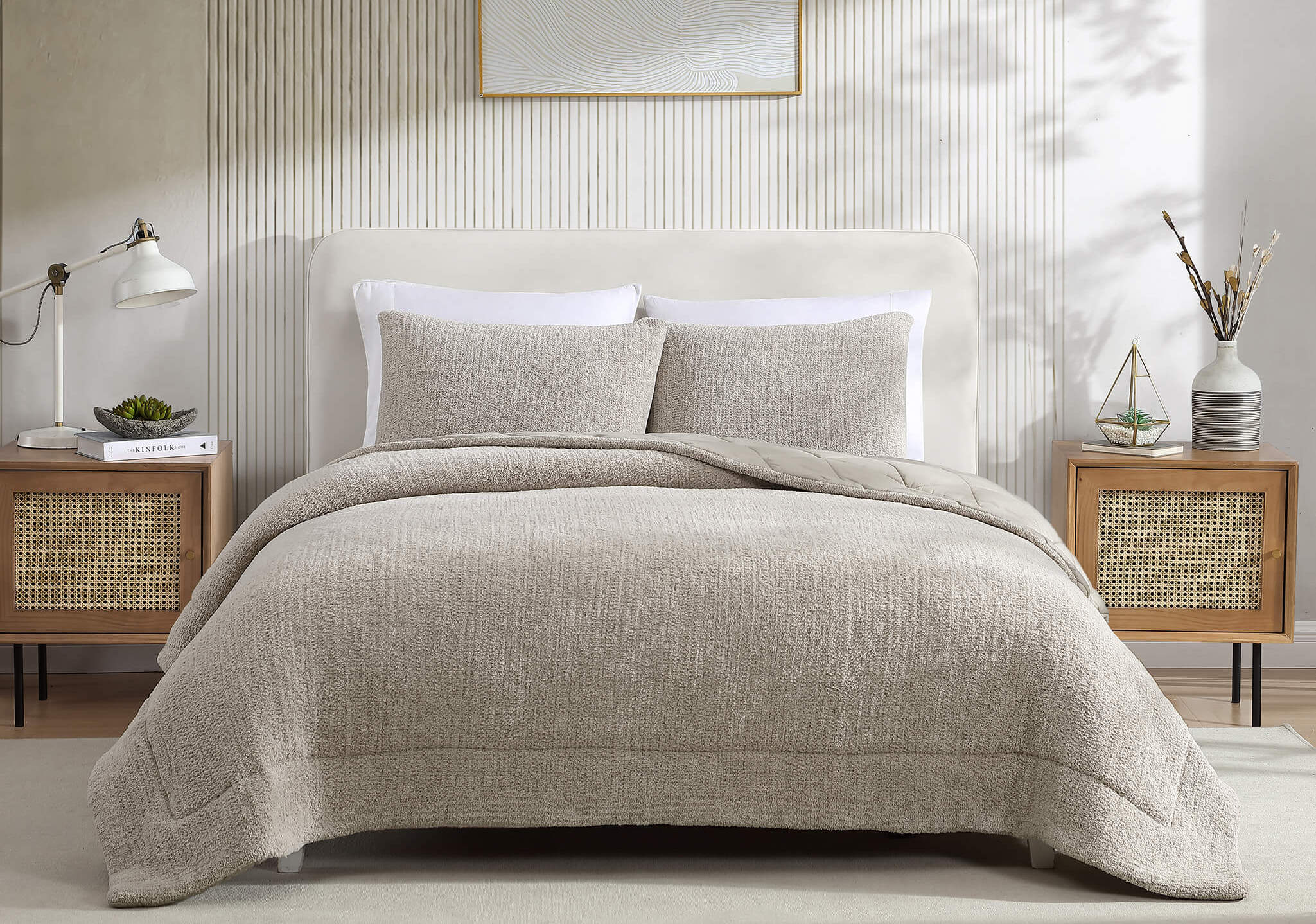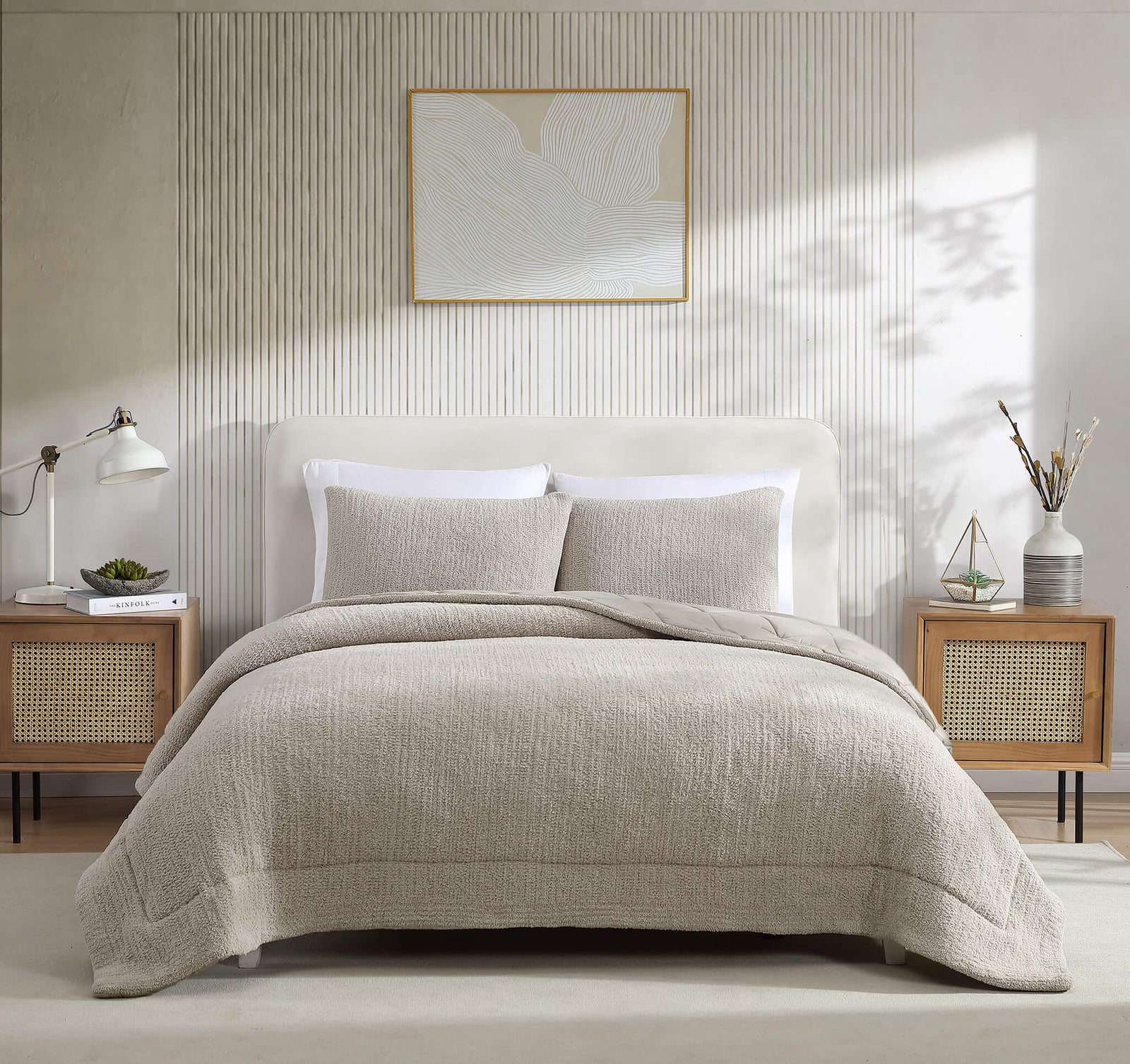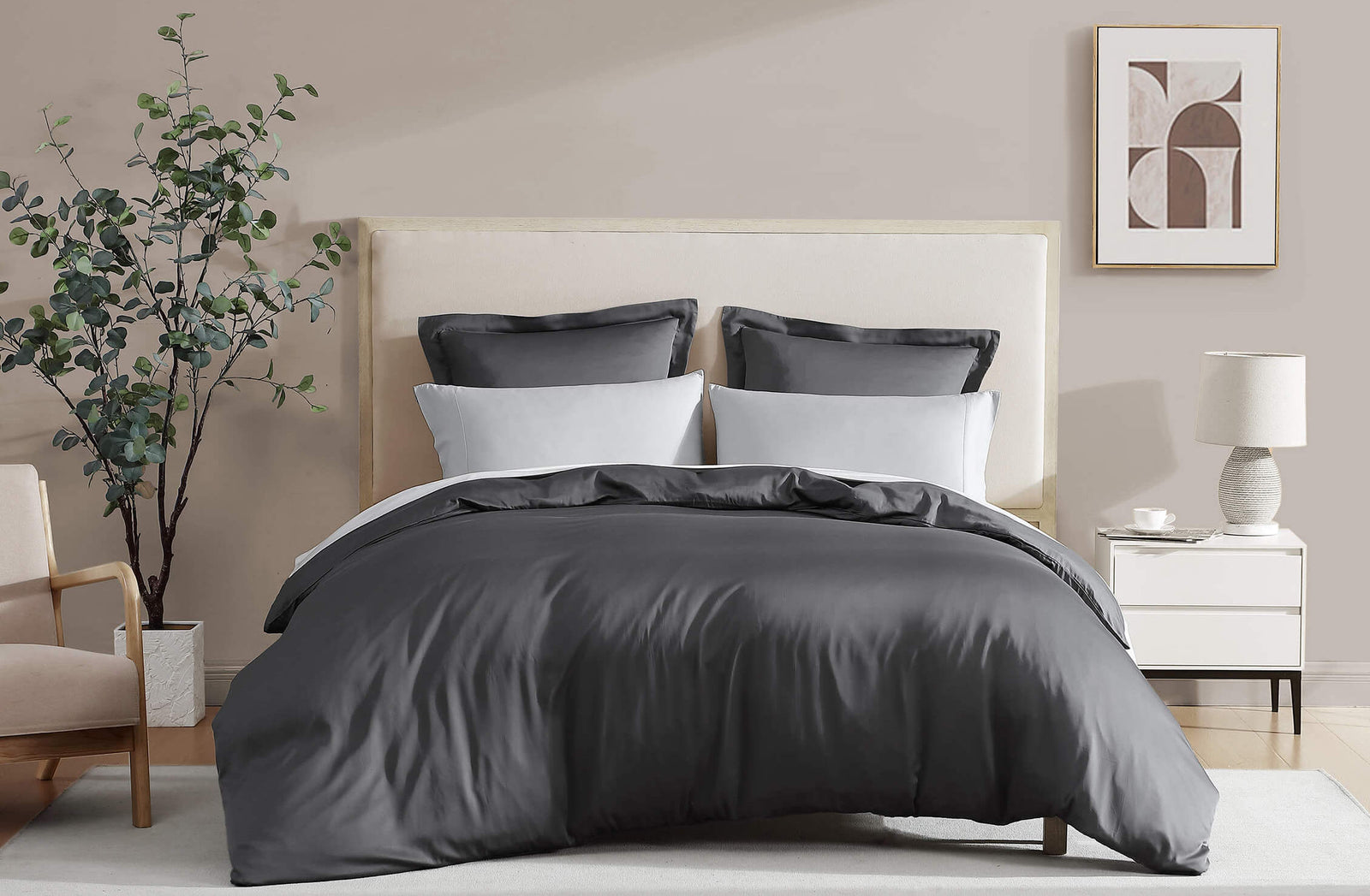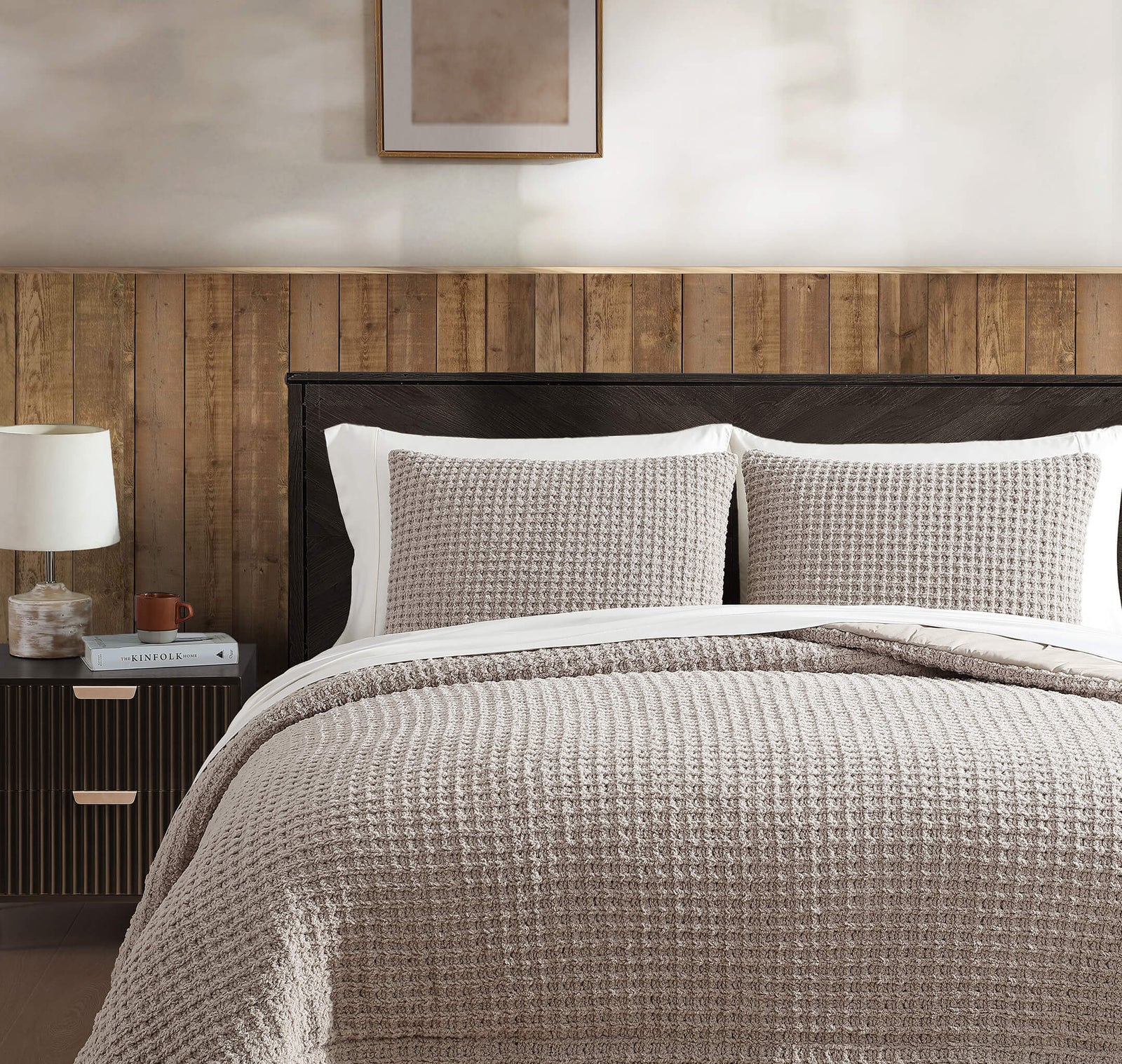Introduction
Choosing the right comforter isn't just about adding a layer of bedding; it’s about enhancing your sleep quality and comfort throughout the year. Whether battling the chill of winter or easing into a cool summer night, the perfect comforter can make all the difference. This guide will help you navigate through the options available to find the best comforter for each season, ensuring you achieve the ultimate comfort and energy efficiency.
Why Choosing the Right Comforter Matters
The comforter you choose directly affects your sleep health and your energy bills. A suitable comforter for the season will not only keep you comfortable but will also reduce the need to excessively heat or cool your room. For example, a lighter comforter in the summer can prevent overheating, while a heavier one in the winter provides warmth without the need for high thermostat settings.
Understanding Comforter Materials
Down Comforters
Down is prized for its durability, light weight, and excellent thermal properties. It's ideal for winter but can be used in cooler spring and fall nights as well. Look for responsibly sourced down to ensure ethical practices.
Synthetic Fillers
For those with allergies, synthetic fillers offer a hypoallergenic solution. They mimic down's insulating properties and are generally more cost-effective and easier to care for than their natural counterparts.
Wool and Cotton Comforters
Wool comforters are perfect for those who prefer natural fibers with excellent temperature regulation properties, making them suitable for both summer and winter. Cotton comforters, meanwhile, are perfect for summer thanks to their breathability and moisture-wicking capabilities.
Seasonal Guide to Comforters
Spring
Opt for lightweight and moisture-wicking comforters to keep comfortable during the allergy season. Fabrics that can easily transition into summer, like lighter down or advanced synthetics, are ideal choices.
Summer
The key to summer comfort is breathability. Cotton and other light fabrics allow air circulation, helping to reduce sweat and discomfort on hot nights. Cooling technologies in synthetic comforters can also add extra comfort by drawing heat away from the body.
Fall
As temperatures drop, a medium-weight comforter can bridge the gap between the extremes of summer and winter. Materials like thicker cotton or lighter wool layers provide versatility through adjustable layering.
Winter
In winter, the focus shifts to warmth. Heavier down comforters or wool-filled comforters are excellent for keeping the cold at bay. Look for higher fill powers in down products, which indicate more warmth.
How to Choose the Right Size and Fit
Ensure that the comforter fits the mattress with a bit of overhang at the sides to cover the bed adequately. Typically, comforters should extend beyond the mattress edges by a few inches to ensure complete coverage.
Care and Maintenance
Maintaining the quality of your comforter involves regular cleaning and proper storage. Most down and synthetic comforters are machine washable, but check the care label for specific instructions. During off-seasons, store comforters in breathable bags to prevent mold and mildew.
Where to Buy the Best Comforters
From luxury bedding stores to online retailers, numerous options are available for purchasing top-quality comforters. Online stores often provide a wide range of reviews, allowing you to gauge the experiences of others before making a purchase.
Conclusion
Choosing the right comforter for each season can dramatically improve your sleep experience. With the right information and a careful selection, you can find a comforter that not only suits your needs but also enhances your bedroom throughout the year. Consider updating your bedding today to maximize your comfort and energy efficiency!
Frequently Asked Questions About Choosing Comforters
What is the best comforter for hot sleepers?
For hot sleepers, the best option is typically a cooling comforter. These comforters are specifically designed with technology that helps regulate body temperature by dissipating heat and moisture throughout the night. Materials like moisture-wicking fabrics, breathable cotton, or specialized cooling fibers ensure a cooler sleeping environment, making them ideal for those who tend to overheat while sleeping.
How often should I replace my comforter?
The lifespan of a comforter depends on its material and how well it is maintained. Generally, a good quality comforter can last 5-10 years. Consider replacing your comforter if it starts to show signs of wear, such as thinning, clumping, or loss of warmth.
Can down comforters be hypoallergenic?
Yes, down comforters can be hypoallergenic if they are properly processed to remove allergens and encased in a tight-weave fabric that prevents dust mites and other allergens from penetrating. Look for down comforters labeled as hypoallergenic or allergy-friendly.
Are there eco-friendly comforters?
Absolutely! Eco-friendly comforters are available in materials like organic cotton, bamboo, and Tencel, which are produced using sustainable practices. Some comforters are also filled with recycled synthetic fibers or responsibly sourced down.
How do I choose the right size comforter for my bed?
To choose the right size, measure your mattress and add a few inches on each side to ensure it drapes properly. Typically, you should look for a comforter that is slightly larger than your mattress size to cover it fully and provide ample coverage for two people if sharing the bed.
What is fill power in down comforters?
Fill power measures the loft or fluffiness of the down used in comforters, indicating how much space one ounce of down occupies in cubic inches. Higher fill power indicates better insulation and less weight, ideal for achieving warmth without heaviness.
How do I care for a wool comforter?
Wool comforters should be aired out regularly and spot cleaned as needed. If deep cleaning is necessary, it's best to take them to a professional cleaner who specializes in wool. Avoid machine washing unless the label specifically says it's safe.
What's the difference between a duvet and a comforter?
A duvet is typically a soft flat bag filled with down, feathers, or a synthetic alternative, and it usually requires a duvet cover. A comforter is similar but generally larger, quilted with stitching that holds the filling in place, and does not require a cover.
Can I use a summer comforter in winter?
A summer comforter can be used in winter if paired with additional bedding layers, such as blankets or a quilt, to provide adequate warmth. However, it's typically more efficient to use a season-appropriate comforter for optimal comfort.













